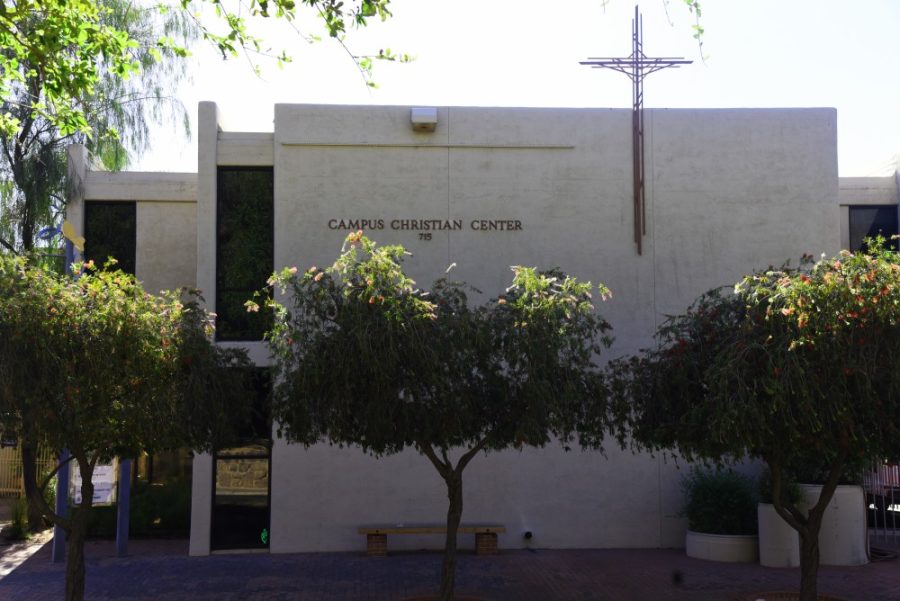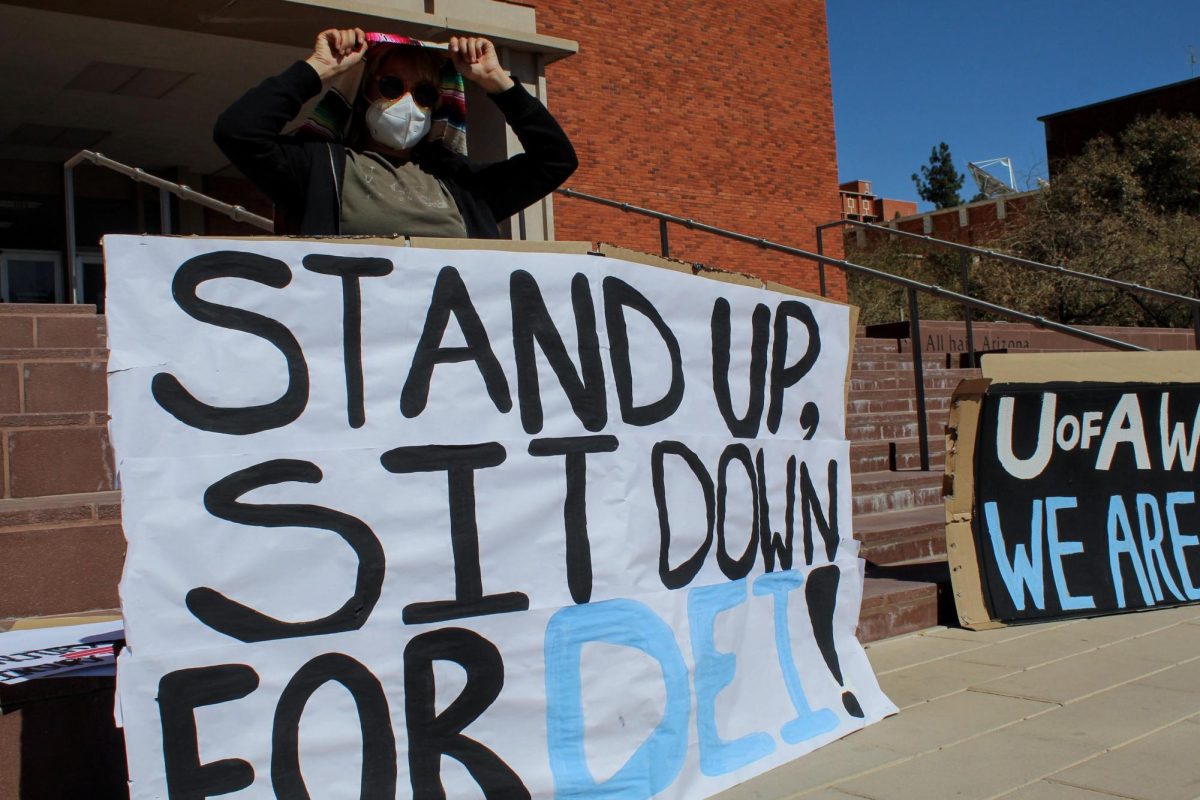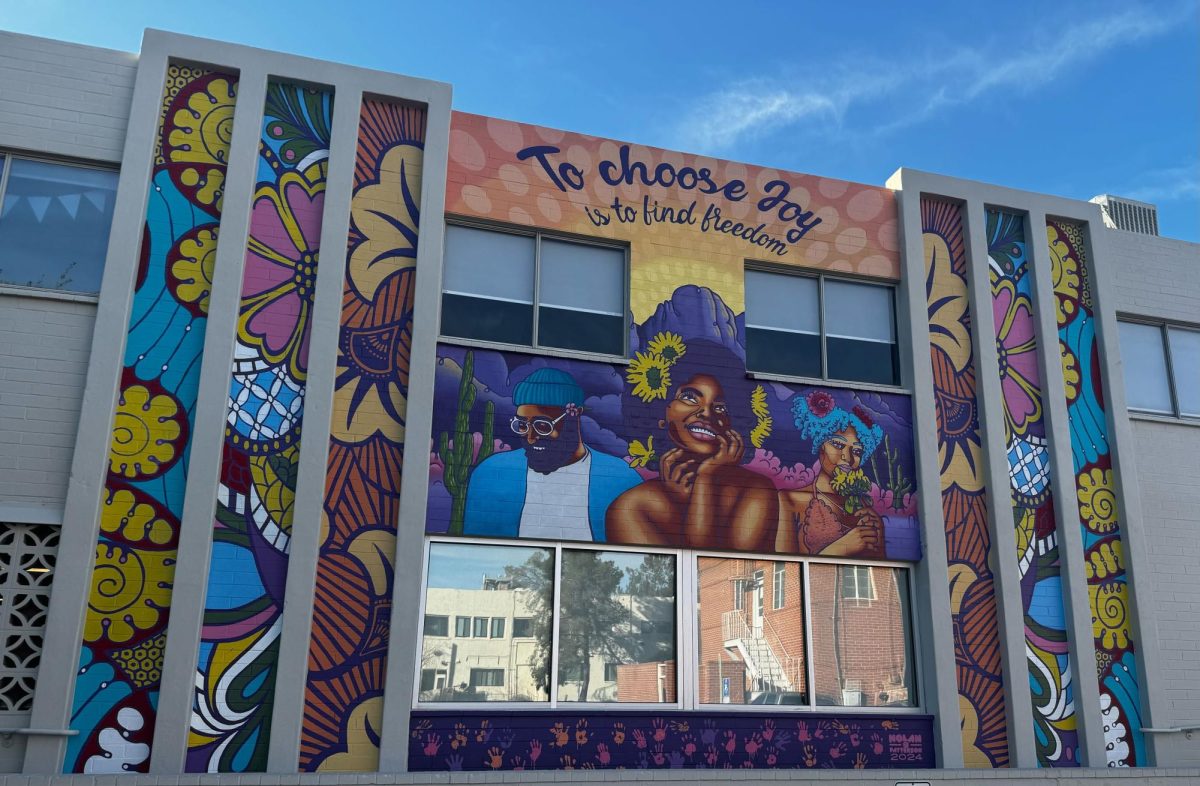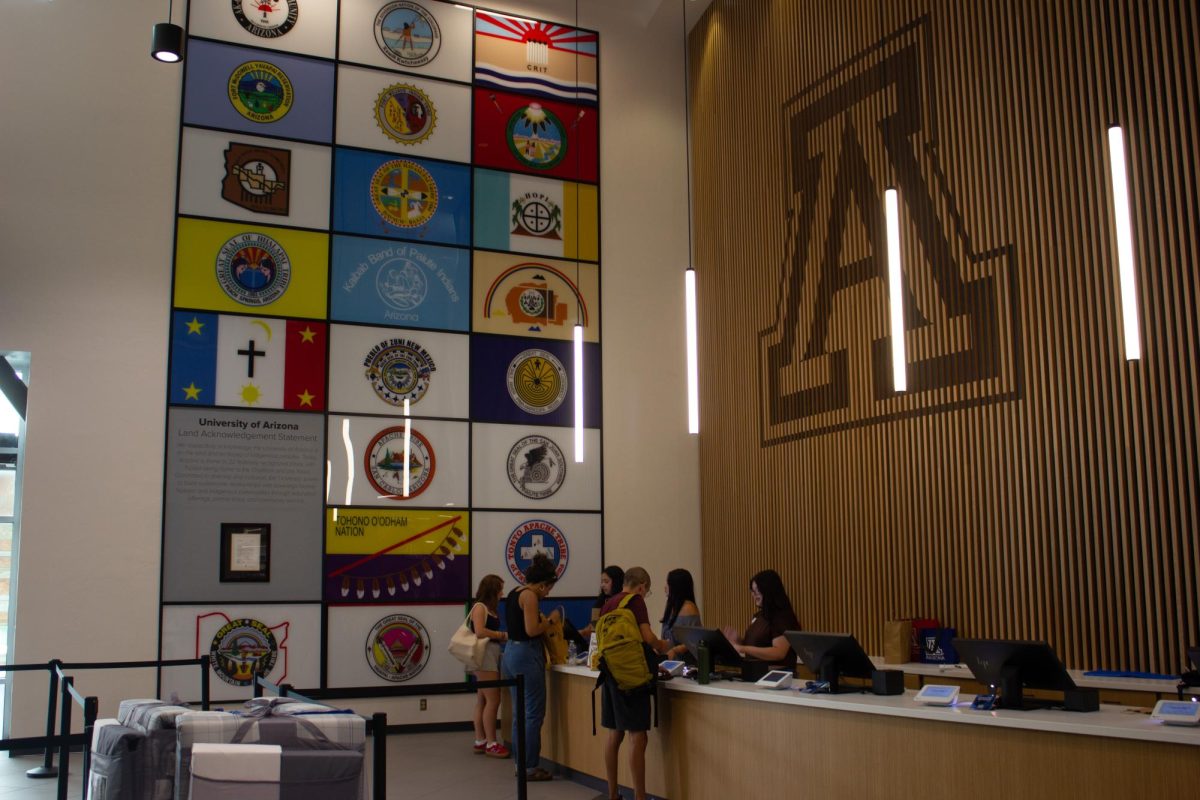On Sunday, April 14, 120 asylum-seeking refugees were dropped off by U.S. Immigration and Customs Enforcement at the Tucson Bus Station between 2 p.m. and 3 p.m. The United Methodist Church was able to arrive and take the first 30 migrants to the Campus Christian Center and transported the rest later.
Hannah Bonner, a minister of the United Methodist Church, said the dropoff on Sunday felt like a deliberate attempt to create chaos.
“For days we had been getting warnings that ICE & Border Patrol would be delivering people to the streets rather than the shelters, in what we know is the ongoing attempt to create the illusion of crisis and surge here on the border,” Bonner wrote on her blog in a post titled “Love is in the Lead.”
RELATED: ‘Arizona 3’ update: Charges dropped, UAPD investigation revealed, ‘Campus
Conversation’ up next
Colby Brown, a University of Arizona senior studying physics and mathematics, is an on-call volunteer for The Inn Project, a project by the Methodist Church that provides an in-between place for refugees before they go to their destination after they have been processed by ICE. Brown said It was clear from the start the Sunday dropoff would require all hands on deck.
“When I got there, there was a bus sitting in the parking lot,” Brown said. “There were Tucson Police officers standing around. There were just a mob of parents and children, and I could see several volunteers who I know running around trying to organize things.”
It turned out the bus and the police officers were sent by Mayor Jonathan Rothschild to help the church transport the refugees as quickly as possible.
“At that point in the day, our number one priority, more than anything else, was getting them out of the parking lot,” Brown said. “Largely because it was very hot — dangerously hot.”
Yoni was one of the asylum-seekers.
“When we got there, we were scared and it was very warm,” he said. “We hadn’t drunken any water. We hadn’t had any food. And we went three days without water and food. All we had were little cookies and juice pouches.”
When volunteers arrived, they provided food and water and restored order, Yoni said.
“She gave us clothes, food, and we took a shower,” he said. “We changed our clothes and we felt brand new, like we were reborn.”
According to Brown, volunteers’ immediate goal was to remove the refugees from the public eye to more effectively help them.
“Our number one goal was … to get them out of the public view as quick as possible, where now we can do our work without the perception of chaos or anything else, because there wasn’t chaos,” Brown said.
Usually ICE will warn the churches and tell them how many people will be drop off, and bring them directly to the churches. According to an ICE spokesperson, they can’t hold families after they’ve been given their release paperwork.
On occasion, however, Brown said “they will just drop off however many people onto the streets,” but usually not in such large numbers.
Usually, the United Methodist church brings the refugees food and water and they offer them help to get to their next destination, as most of them don’t speak English and don’t know how to navigate the transportation system here. Volunteers will wait with them, help them navigate or bring them to shelter.
Yasmeen O’Keefe is a spokesperson for ICE.
“The family surge is ever changing,” O’Keefe said. “Sometimes there are larger numbers of them coming through the Arizona border and other times there’s less …”
She also explained the process behind drop-offs, like the one that occurred on April 14.
“[Enforcement and Removal Offices] has been and continues to work with [non-governmental organizations] and faith-based organizations,” O’Keefe said. “If they can not accommodate families, we ask them if they would like to be dropped off at a transportation hub, some say yes others just walk out the door. We simply provide a courtesy ride.”
Overall, Brown said that in order for the situation to not overwhelm them, they had to do their best.
“[We were] shocked that this had actually happened, recognizing the monumental task that we were about to undertake, understanding that we could undertake it, but only if everything went really well…” Brown said. “And that’s exactly what happened, and that’s why we were so successful on Sunday.”
From the other side, Yoni and the other migrants were unsure about the situation.
“We came and we were scared,” Yoni said. “We were waiting for a long time to eat, so we were hungry, and when we came here, we started feeling a little better. The people that have been here have been very helpful and have been very attentive. And we’re so appreciate, truly and from the heart.”
Yoni said he and his son were held by ICE for six days. He recalled the ICE facilities.
“We’re enclosed in a room. We call them ice boxes,” he said. “It’s literally very, very cold, especially for the children. It’s very bad there. There’s no food except for these little burritos and juice boxes.”
Yoni said he came to the United States because he wants his son to learn English and have opportunities they don’t have in Mexico. Yoni’s bus was canceled four times, so he has been with the Inn Project for six days. He has made many friends while he’s been with the project. The volunteers call him “Mr. Popular,” because he gels his hair back every day.
“We will miss him very much,” Bonner said. “He’s been a big help.”
— Editor’s Note: Per his request, the Daily Wildcat has chosen not to publish the last name of a source in this article due to concerns it will affect his legal case to be granted asylum.
Follow Alana Minkler on Twitter









